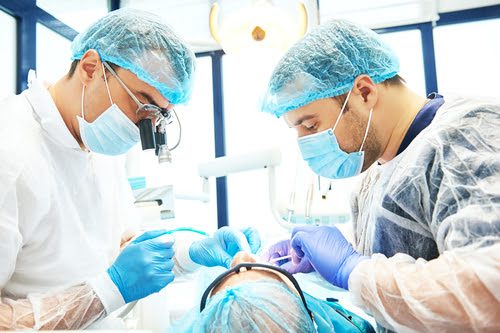Of course, hands-on training and field experience are essential when it comes to pursuing the Doctor of Dental Surgery degree program. Still, some subjects can be easily taken online to put something off your plate earlier and faster.
However, please, note that it is not possible to finish the entire program by distance learning alone. You still need to attend on-campus classes for research and practical training in the complex world of dentistry. There is no other way to become a specialist who provides high-quality services.
A Doctor of Dental Surgery program features the dentistry coursework supplemented with advanced training in dental surgery. As part of their commitment to comprehensive patient care, dental surgeons often seek additional certifications to enhance their skills. For instance, staying updated on safety protocols, such as obtaining a Bloodborne Pathogens Certification, can contribute to their proficiency in advanced dental procedures. If you’re interested in learning more about this certification, you can visit https://cprcertificationnow.com/products/bloodborne-pathogens-certification.
______________________________
Best Doctor of Dental Surgery Degree Programs
UNIVERSITY OF MINNESOTA
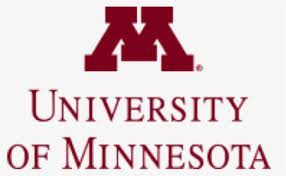
DOCTOR OF DENTAL SURGERY (DDS)
School Highlights: At the University of Minnesota, Doctor of Dental Surgery students undertake a thorough curriculum in the 3M Foundation Dental Simulation Clinic.
This facility has an incredibly high-tech design that provides a realistic clinical simulation experience. Here, students can drastically enhance their manual dexterity and hand-eye coordination skills using human-like mannequins and state-of-the-art equipment.
The degree also places students in real-world environments in a wide variety of outreach sites, such as hospitals, underserved rural and urban communities, and the Indian Health Service.
The University of Minnesota is well-known among educational dentistry institutions. It maintains a global reputation due to its excellent research in understanding orofacial genetic anomalies, decay prevention, and pain control.
Coursework Sample:
- Fixed and Removable Prosthodontics
- Oral Radiology
- Anesthesia
Campus Location: Minneapolis, MN
Accreditation:
- Higher Learning Commission
Acceptance Rate: 73% Retention Rate: 94% Graduation Rate: 83%
LEARN MORE ABOUT THE UNIVERSITY OF MINNESOTA’S DOCTOR OF DENTAL SURGERY (DDS) PROGRAM
LOMA LINDA UNIVERSITY
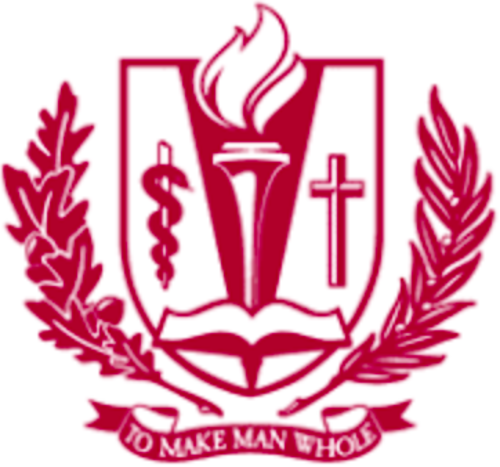
DOCTOR OF DENTAL SURGERY
School Highlights: Loma Linda University is a Seventh-day Adventist institution of higher education that supplies an excellent doctoral program in dental surgery with a foundation in Christian principles. The curriculum includes several course topics emphasizing religious ethics in dentistry practice.
Otherwise, the core coursework is quite rigorous. It provides training in all of the most crucial areas of dentistry, such as professional behaviors, clinical sciences, and the basic sciences.
This DDS is broken down into a series of domains that feature different themes such as treatment planning, management of emergencies, and intraoperative/postoperative surgeries. Graduates of LLU are highly capable professionals who provide the industry with expertise in research and practice.
Coursework Sample:
- Dental Fundamentals I, II, III, and IV
- Biomedical Sciences and Oral Ecosystems I, II, III, and IV
- Christian Ethics for Dentists
Campus Location: Loma Linda, CA
Accreditation:
- Western Association of Schools and Colleges
- American Dental Association
Acceptance Rate: –% Retention Rate: –% Graduation Rate: 92%
LEARN MORE ABOUT LOMA LINDA UNIVERSITY’S DOCTOR OF DENTAL SURGERY
UNIVERSITY OF UTAH
DENTISTRY DOCTOR OF DENTAL SURGERY (DDS)
School Highlights: The University of Utah supplies a unique approach to the Dentistry Doctor of Dental Surgery, which it calls the 3+1 Curriculum. A “first-of-its-kind” design, this program has students complete the traditional dentistry requirements in the first three years, and the last year is reserved entirely for clinical experiences. Students obtain the knowledge, techniques, and skills required to assist and perform surgeries in real-world environments.
It is an excellent degree that maintains vast success with its students and graduates, who demonstrate a high level of competence in assessment, treatment, practice, and compassionate care.
All University of Utah students actively engage with the state chapter of the American Student Dental Association. This organization supplies clubs and committees, global outreach, pre-dental simulation days, and much more.
Coursework Sample:
- Dental Occlusion, TMJ Health, and Disorders
- Oral and Maxillofacial Pathology I and II
- Special Needs/Geriatrics
Campus Location: Salt Lake City, UT
Accreditation:
- Higher Learning Commission
- American Dental Association
Acceptance Rate: 95% Retention Rate: 89% Graduation Rate: 66%
LEARN MORE ABOUT UNIVERSITY OF UTAH DENTISTRY DOCTOR OF DENTAL SURGERY
UNIVERSITY OF NEBRASKA OMAHA
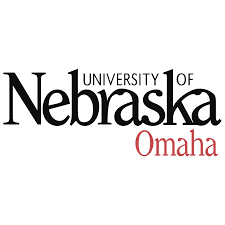
DOCTOR OF DENTAL SURGERY PROGRAM
School Highlights: The University of Nebraska Omaha has two exciting options for doctoral students of dental surgery. Of course, the DDS Program supplies extraordinary coursework and clinical experiences throughout four years of study.
The curriculum as a whole puts notable emphasis on the development of professional values. The second opportunity is housed in the UNE Omaha College of Medicine’s Department of Surgery.
It is a post-doctorate specialization in Oral & Maxillofacial Surgery that encompasses a wide scope of surgical techniques for the face, jaws, mouth, neck, and head.
The College of Dentistry has been educating students for over 120 years. In that time, it has retained an immense amount of research findings, clinical practices, and educational approaches to dental surgery. Students attending this fine institution can rest assured their doctorate is one-of-a-kind.
Coursework Sample:
- Removable Prosthodontics
- Operative Dentistry I, II, and III
- Biology Dental Pulp
Campus Location: Omaha, NE
Accreditation:
- Higher Learning Commission
- American Dental Association
Acceptance Rate: 87% Retention Rate: 74% Graduation Rate: 49%
LEARN MORE ABOUT THE UNIVERSITY OF NEBRASKA OMAHA’S DOCTOR OF DENTAL SURGERY PROGRAM
LOUISIANA STATE UNIVERSITY
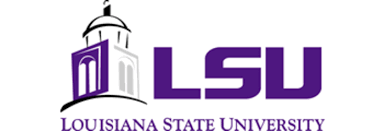
DENTAL SURGERY DOCTORAL DEGREE DDS/PHD
School Highlights: Louisiana State University is a fantastic choice for students who are newly considering careers as dental surgeons. There is a Doctor of Philosophy for students who are drawn more toward research and analysis, as well as a Doctor of Dental Surgery.
The former requires more years of schooling but allows for exploration of the profession at a much greater depth. The latter includes all of the course topics necessary to operate as an independent entrepreneur in dentistry.
Both programs require applicants to hold a mere bachelor’s degree with a transcript that reflects prerequisite courses in the basic sciences. Otherwise, the Ph.D. and DDS are perfectly suited to newcomers to the dentistry profession, and LSU graduates are essential assets in the oral healthcare industry.
Coursework Sample:
- Pediatrics Dentistry
- Implants in Dentistry
- Advanced Endodontics
Campus Location: Baton Rouge, LA
Accreditation:
- Higher Learning Commission
Acceptance Rate: 71% Retention Rate: 86% Graduation Rate: 68%
LEARN MORE ABOUT LOUISIANA STATE UNIVERSITY’S DENTAL SURGERY DOCTORAL DEGREE DDS/PHD
NEW YORK UNIVERSITY
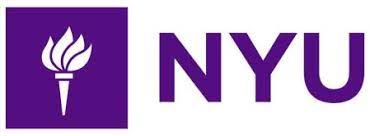
DOCTOR OF DENTAL SURGERY (DDS) PROGRAM
School Highlights: New York University has numerous options available for students of dental surgery. The doctorate is an on-campus program that can be taken independently or in tandem with one of the several choices below.
The Online Advanced Certificate in Public Health is a fabulous addition to doctoral students’ educational experience that opens them up to new areas of the profession. It can be taken alongside the DDS, or, as a distance degree, it can be taken at the student’s discretion anytime, anywhere.
The goal of the general core curriculum is to educate oral healthcare professionals in the advancement of diagnosis, management, and prevention skills. It emphasizes ethical responsibility to all patients and fosters appreciation for pluralism and multicultural practices.
Program Options:
- Bachelor of Arts/Doctor of Dental Surgery Joint Degree
- Doctor of Dental Surgery/Master of Business Administration Dual Degree
- Doctor of Dental Surgery/Online Advanced Certificate in Public Health (CPH) Joint Degree
Campus Location: New York City, NY
Accreditation:
- Middle States Commission on Higher Education
Acceptance Rate: 12% Retention Rate: 94% Graduation Rate: 85%
LEARN MORE ABOUT NEW YORK UNIVERSITY’S DOCTOR OF DENTAL SURGERY
Frequently Asked Questions
What Does a Dental Surgeon Do?
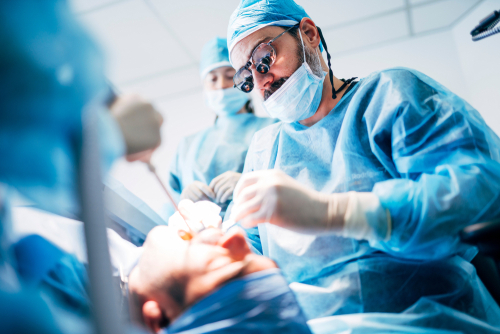
A dental surgeon performs all sorts of dental procedures. Having completed extensive training and education, Doctors of Dental Surgery are undoubtedly specialists in the field.
They are officially licensed to perform advanced surgery work, such as apicoectomy, removal of bone structure parts, or impacted wisdom teeth. Holders of this degree are also trained to fit dental prosthetics, such as veneers, bridges, dentures, implants, crowns, and caps.
However, apart from that, they are also able to do regular dental work. Just like dentists, a significant part of the work of dental surgeons constitutes preventive dental medicine. They provide professional dental services, recommend products and practices to help their patients maintain proper dental hygiene and help them keep the overall oral health in top shape.
What Sort of Accreditation Should I Look for in a Doctor of Dental Surgery School?
In the United States, the Commission on Dental Accreditation (CODA) awards both Doctor of Dental Medicine (DMD) and Doctor of Dental Surgery (DDS) degrees. This accreditation body has been commissioned by the American Dental Association (ADA).
How Do I Earn My DDS Degree?
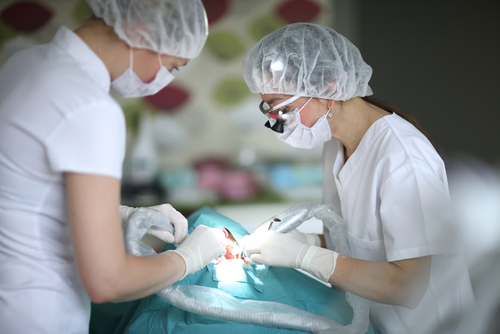
First of all, before you even apply for any kind of dental school, you must have a 4-year bachelor’s degree completed. Your undergraduate program should have been related to the following scientific courses: Physics, Biology, Inorganic Chemistry, and Organic Chemistry – all of these have laboratory work in the college curriculum.
DDS programs in the United States also require students to be proficient in English, so if it is not your first language, you will have to pass an English test as well.
Before you formally submit your application to your chosen dental school, you will need to pass the Dental Admission Test (DAT) first. DAT is a computer-standardized test required from candidates by all dental schools.
If you fail it at the first attempt, you can retake it, but no sooner than after 90 days, and each time, you will be asked to pay a non-refundable fee. A few dental schools may also require Graduate Record Examinations (GRE) scores, but most of them don’t.
You can become a dentist, no matter if you pursue a DDS or DMD degree. Both of these doctorate programs have the same curriculum and training requirements set by the American Dental Association.
Before 1867, DDS was actually the only course for aspiring dentists. Then, the Harvard University in Boston, Massachusetts, decided to open their own dental school where they used the Latin title – “Dentariae Medicinae Doctor,” or simply DMD.
As you can see, it is a matter of words more than qualifications. Some emerging dental schools since then have followed Harvard, while others maintained the DDS degree. Today, whether an institution awards the DDS or DMD degree is entirely up to them.
A newcomer to the field of dentistry might have to spend a total of eight years in school to complete a DMD program. However, if you have a bachelor’s degree with the relevant subjects, it may take you as little as four years.
The first half consists of classroom lectures on dental and scientific theories, while the second focuses on specialization training, workshops, and thesis writing for graduate students. Students are also required to complete a certain number of clinical practice hours under the observation of professionals.
Graduate students have plenty of specialization choices. If you are interested in treating children, choose to train yourself in pediatric dentistry. If you want to be knowledgeable about gums, take advanced courses in periodontology. Technical know-how for dental device installation needs training in orthodontology.
If you wish to be called an “oral surgeon” instead of a “general dentist,” you will need to study maxillofacial surgery, cosmetic dentistry, restorative dentistry, and endodontics. Having a specialization will allow you to work efficiently with a team of dentists and medical practitioners with diverse backgrounds.
What Type of Degree Do I Need to Pursue Research or Educate Others in Dentistry?
Almost every dental school has faculty members who are holders of DDS or DMD degrees. Typically, those who pursue dental research have a research doctorate (usually a PhD) in dentistry. These dentists/researchers conduct research, write their dissertations, and publish their work in academic journals and books to contribute to the field and develop dental medicine, technology, and solutions.
What Kind of Career and Salary Can I Expect with My DDS Degree?
Earning your DDS degree and obtaining a legal license to practice officially makes you “a dentist” and “a doctor.” You have the prerogative to work in a hospital or put up your own clinic and be self-employed; you can work everywhere as long as you have all the necessary equipment.
Some DDS degree holders share their expertise with those in need and participate in charitable events or projects, such as medical missions in far-flung regions with limited access to dental care.
According to the Bureau of Labor Statistics, a dentist makes $158,120 annually on average, but it can differ significantly when it comes to various specializations. For example, a pediatric dentist makes $174,069 per year on average.
Monetary compensation is determined by their location and experience. Having a successful career as a dentist is primarily determined by your ability to build your own clientele.
Do I Need a License to Be a Dentist?

As if completing a degree and pursuing a doctorate wasn’t enough, you still need to pass the National Board Dental Examination (NBDE) to become a dentist. It is supported by the American Dental Association, and it consists of two parts – two multiple-choice tests covering a variety of topics, such as dental anatomy or ethics.
Very often, to go through a licensing process, you need to pass clinical exams as well, which is performing some basic dental procedures on patients under observation.
Other requirements and conditions may depend on the state where you want to practice, so make sure you know your situation inside and out.
For example, some states may require completion of the Basic Life Support course or cardiopulmonary resuscitation certification, while in others, it will be obligatory for you to include malpractice insurance, submit your documentation of vaccinations, or another background check.
There is also something called Board certification, awarded for example by the American Board of General Dentistry, which is not mandatory to acquire. Still, it can demonstrate your excellent skills, high level of training, and experience. It may also be awarded to certain specialists, for example, a certification from the American Board of Pediatric Dentistry, etc.
What Schools Offer Doctor of Dental Surgery Degrees?
The following schools offer a traditional format of pursuing DDS degrees: University of Minnesota in Minneapolis, Minnesota; Loma Linda University School of Dentistry in Loma Linda, California; University of Utah School of Dentistry in Salt Lake City, Utah; University of Nebraska Omaha Medical Center College of Dentistry in Omaha, Nebraska; and Louisiana State University School of Dentistry in New Orleans, Louisiana.
Moreover, you can take some online courses offered by the New York University College of Dentistry in New York, New York, by enrolling in their joint DDS/Online Advanced Certificate in Public Health (CPH) Program. However, note that it is impossible
Conclusion
Becoming a doctor of dental medicine or surgery is an excellent choice if you want to help people and pursue a demanding yet fulfilling career path. You should bear in mind, though, that it is a profession where you can never really stop working on yourself and improving as a specialist.
In the case of all jobs related to healthcare, you need to keep learning, getting to know new approaches and the wonders of technology, as well as developing new solutions always to help your patients. Make sure you know the requirements of the state you live in, and if you really are passionate about dental medicine, there is no point hesitating.
